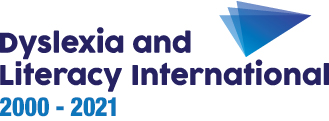ACTIVITY 14
1. For an informal, prognostic assessment of phonological awareness, how many tests can you think of? (Hint: there are at least five)
blending, detection, fusion, generation, segmentation, substitution, suppression
2. Now, taking all seven, please rank them in order of increasing difficulty
- generation
- detection
- blending
- segmentation
- suppression
- substitution
- fusion
3. Taking ‘suppression’ from the above list, quickly write down two slightly different tests, but not using the words given in the course
The answers are open but they should consist of words with preferably not more than two distinct syllables or two phonemes.
‘Please listen to this word, [ golden ], and now say it without [ gol ].’
Answer: [ den ]
‘Please listen to this word, [ strand ], and now say it without the [ r ].’
Answer: [ stand ]
4. What kind of list of items would you use to test the decoding system?
Pseudo-words
5. How would you test auditory short-term memory?
Ask the child to repeat a series of random digits beginning with one or two, increasing the number of digits until the child makes two consecutive errors in a given length of sequence.
6. What other kind of short-term memory can be tested?
Visual short-term memory
7. When asking a child to repeat the months of the year, what is being tested?
Sequencing
8. Is this the same as long-term memory?
Yes and No. The point is that the sequence of the names and sequence of the months of the year are arbitrary and should be mastered. The ability is relevant to the ability to remember the alphabet, which is also completely arbitrary.
Somebody could have an excellent memory for music or pictures and be unable to recite the alphabet, which requires the additional ability to sequence an arbitrary sequence of labels.
9. Could you write a short paragraph to show why the assessment of comprehension is important in identifying a child who may have dyslexia? Incorporate the following keywords: context, speed, automatically, guessing, overload, implicit, explicit, reasoning
The child with dyslexia will rely more than the ordinary child on context in order to get around the inability to decode difficult words at speed. There will be more guessing. The child at risk is slower and even quite common words are not accessed automatically. The child is doubly overloaded and therefore the understanding of the text will be affected. The child at risk will also have more problems replying to implicit than to explicit questions owing to difficulties with understanding and therefore will have problems in reasoning and inferring.
10. How is ‘rapid automatised naming’ tested?
With a set of pictures in front of which the child is asked to say the names of the objects as rapidly as possible.
Activity 15
True or False ?


